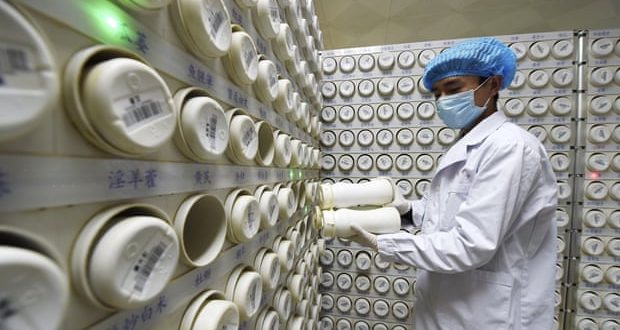Early results of trials on Covid-19 patients expected in March
Doctors are likely to know within two to three weeks whether drugs being used to treat patients infected with the new coronavirus are working, according to the World Health Organization.
The timetable for early results from two trials taking place in China is short but feasible because of the large concentration of sick people at the centre of the outbreak in Hubei province. That allows a significant number of people of similar ages, fitness and stage of illness to be compared.
The drugs have been approved for other conditions, which means they do not have to undergo safety tests in animals and then humans.
Two trials were expedited on the recommendation of the WHO’s experts. Patients in one are being given Kaletra, taken by people with HIV. The drug is a combination of two antiretrovirals, lopinavir and ritonavir. Scientists are awaiting the results from the first 200 people to be treated with it.
The other drug in trials is remdesivir, made by Gilead. It was tested during the Ebola outbreak in the Democratic Republic of the Congo in 2018 but it was not sufficiently effective against that virus.
The new trial of remdesivir will be “gold standard” and investigate how well it works in moderately and severely ill patients compared with others given a placebo.
The WHO’s director general, Dr Tedros Adhanom Ghebreyesus, said at a briefing on Thursday there would be preliminary results within three weeks. The drugs chosen have been prioritised by the organisation’s research and development experts.
A third drug, the antimalarial chloroquine, which was being used in China, was not in trials, the WHO said.
Tedros said the international team led by the WHO, now in China, was discussing with frontline workers the efficacy of various treatments. It was important to test and diagnose people promptly, he said, because “the earlier patients are tested and treated, the better they do”.
The team includes experts from several countries, including the US – despite tense Washington-Beijing relations over trade. Others are from Germany, Japan, Nigeria, Russia, South Korea and Singapore.
There are no proven therapeutics for Covid-19, the illness caused by the coronavirus, just as there were none for Sars (severe acute respiratory syndrome). Kaletra is being trialled in Mers (Middle East respiratory syndrome) but the cases are too few to get results quickly.
Tedros said the team was pushing ahead with a vaccine for the long term but it could take about 18 months.
There are 74,675 cases of Covid-19 in China and there have been 2,121 deaths. “The data from China continues to show a decline in new confirmed cases. We are encouraged by this trend but this is no time for complacency,” the WHO’s director general said. Outside China there had been 176 cases in 26 countries and seven deaths, he said.
He urged the international community to help fund the fight against the disease.
“Because of the serious measures that China is taking, the number of cases in the rest of the world is small. But it doesn’t mean that the small number of cases in the rest of the world will stay the same for long.”
The WHO issued an appeal to raise $675m (£524m) because “the finance is still low”, Tedros said.
The Guardian
 Lebanese Ministry of Information
Lebanese Ministry of Information



